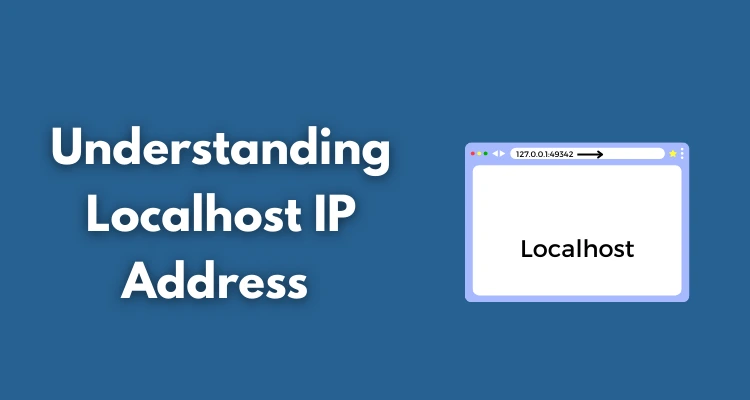In the digital realm, technical terms like 127.0.0.1:49342 can appear perplexing, especially for those encountering them during server configurations or application testing. This specific address commonly related to the local host plays quite a considerable role in networking and application development. First, it is necessary to discuss its function, common mistakes connected with it, and ways to resolve these problems for developers, specialists in Information technologies, and potential enthusiasts.
In this article, we will read about 127.0.0.1:49342, feelings about how it looks, what it does for the development of local communities, and the kinds of errors that can be made working with such large numbers.
Understanding 127.0.0.1 and Localhost

It is an ordinary address that would enable a computer to be able to talk to itself. It is, however, noteworthy that 127.0.0.1 is naturally self-driven by routing processes due to its self-referencing characteristics, which makes it a very useful tool in the development of applications and services in networking where application or service developers and IT professionals for that matter do not need an external network on which to test an application or service.
Localhost is an alias of the server on the same computer on which applications are run for development or debugging. There is where developers can test it, and make changes on it independently before it rolls out into production systems. The connection 127.0.0.1:49342 means showing a local server port on the online connection at 49342.
What Does Port 49342 Represent?
Networking also involves ports; these are end points of specific processes and or applications involved in communication. That number ‘49342’ is a random port selected by the system intending to make a local connection to a certain service or application.
Every port is related to a certain process and hence, there can only be a smooth flow of data between the server and the client. In the case of 127.0.0.1:49342, the port provides a link between a local host or the local server and an application. This setup is particularly important during software development since several services might be running at one time, every one of them using a different port.
Why Do Errors Occur with 127.0.0.1:49342?
Errors related to 127.0.0.1:49342 may happen for various reasons. In most of the scenarios, connectivity breakdowns can arise from misconfigurations in the parameters of the server or an application, rivalry in the use of ports, and bugs in the software. For instance, if two applications both try to transact on TCP port 49342 at the same time, then there is a conflict, and the applications will throw an error indicating that the port in use already exists.
Firewall or antivirus software produces the capability to deny connections to particular ports and this results in broken habits of communicating using the local host. Also, there could be problems that are associated with the wrong application of routes or some binding problems that cause interruptions.
How to Troubleshoot 127.0.0.1:49342 Errors?

Resolving errors associated with 127.0.0.1:The numbers to be analyzed in 49342 need more structure. The first stage involves assessing exactly what is wrong and as often as not this can be a real challenge. The information on the issues that occurred can be found in the application logs. The most common cause of this problem is the conflict of ports used in the system; usually, you can solve this problem by releasing the chosen port or identifying a new one in the configuration files of the application.
It is also important to confirm that your Firewall setting will permit traffic to and from that port. For developers, there is often the use of third-party apps such as Postman or consoles in a web browser which can be useful in finding problems with API endpoints or server outputs.
If the error does not go away, the server can be restarted or the local DNS cache cleared to resolve the error. These steps aim to adjust the local network settings which may usually help eradicate small hitches.
When is 127.0.0.1:49342 Used?
This is the local host on the specific address and port that is usually employed during development or testing of applications for instance. Developers depend on such configurations to realistically test live scenarios while isolating the application from common network platforms.
The advantage of using 127.0.0.1:49342 is very easy to use and very secure. Because the communication stays within the boundaries of the said machine, none of the outside third-party interference is possible. This kind of setup is often used to practice APIs, database connections, or any service that has a need to use a network communication layer.
How is 127.0.0.1:49342 Related to Web Servers?
Systems such as Web Servers like Apache, Nginx Node.js, etc have the advantage of using localhost addresses for development. When a server application is run on the local machine, it allocates an instance port that is, for example, 49342. Developers access the server by navigating to 127.0.0.1:49342 they are supposed to use in their browsers or tools.
This configuration makes it possible for only the developer machine to connect to the server, then we have a secure environment to debug or test. All these changes can be made almost in real-time so that new cycles of development can be very short.
Common Scenarios Involving 127.0.0.1:49342
There are various scenarios where 127.0.0.1:49342 might be encountered. One typical use is during API development this direction is used as the base URL for local API endpoints. Another example is the case when the local database server to run tests connects to the application via such a port.
Programmers who use Docker or virtualization also use local addresses in their operations regularly. These are tools that create instances of different environments on the same machine and environment use different localhost ports to communicate.
Security Considerations for 127.0.0.1:49342

Even though localhost is very secure since it only runs programs that are localized to the computer, it is not immune to risks. In some cases, the firewall configured for the system may be misconfigured or the settings may be decentralized to allow malicious access to the localhost server. There are local ports such as the 49342 that should only be interacted with by trusted processes.
Ensuring periodically the update of the software installed on the localhost, changing the passwords of the applications developed at localhost to password safe or to use master passwords, and checking the local network utilization are fundamental measures to guarantee the localhost security.
Conclusion
The address 127.0.0.1:49342 plays a pivotal role in software development and local testing. Its importance is mainly derived from the fact that it offers safety and isolation for debugging SESs and applications. Knowing the general goal of building localhost addresses, possible mistakes when working with them, and the potential solutions for the issue, developers and IT specialists can integrate the addresses into their practice competently.
Errors involving 127.0.0.1:49342 can be daunting, but with a structured approach to problem-solving, they can be resolved quickly. Whether it’s port conflicts or firewall settings, the key lies in diagnosing the issue accurately and applying the appropriate fix. With its versatility and reliability, it remains an indispensable tool in the developer’s toolkit.



